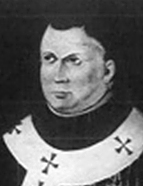

Although João Pedro Ribeiro's tone deserved some criticism from the Academy's censors (António Baião, A infância da Academia [The infancy of the Academy]..., 1934, pp. 197-200) , this controversy did, to a certain extent, anticipate those which, with regard to the reforms introduced by the 1834 revolution in the forms of land ownership (João Pedro Ribeiro-Coelho da Rocha ) and Ourique, will place Alexandre Herculano against Father Francisco Recreio and other authors in later years . The unabashed and ironic tone on both sides; the legitimacy of unwritten tradition versus the unique value of documents with proven authenticity; the continuity of Joanist reformism — whether in charters, religious orders, or improvements in agricultural income — interrupted by the fierce, legal legitimacy of intellectuals such as Herculano and Mouzinho da Silveira, all emerge in these heated dialogues between men of letters with shared subjects of analysis but opposing perspectives.
Even after King Miguel and his court departed for various European capitals — London, Paris, Rome — Friar Fortunato followed his sovereign to the Eternal City and lived there for more than ten years, as did two other members of the Academy with important historical and cultural writings and public roles under King Miguel: the Bishop of Viseu, Francisco Alexandre Lobo, and the Viscount of Santarém. Unlike both of them — and the Dukes of Cadaval and Lafões, also in Paris — Friar Fortunato did not remain anonymous as a private individual or as a merely erudite man of letters: similarly to the Bishop of Viseu, he wrote several pastorals to his flock of faithful in Évora, commenting on the open schism between revolutionised Portugal and the Holy See, but he maintained his official roles as ruler in the name of King Miguel, replacing António José Guião as minister in 1836 and António Ribeiro Saraiva as the head of the Miguelist party in exile (Maria Teresa Mónica, Errâncias Miguelistas… [Miguelist errors...], 1997, pp. 57-58). King Miguel's counsellor since 1831, he was also the papal delegate for Portugal in Rome (Marília Favinha, Op. Cit., pp. 28, 151 and 163). However, that doesn't stop him from dedicating himself to scholarly writing. Thus, we find Friar Fortunato, now in his sixties, addressing the Portuguese Catholics of his archbishopric, researching Portuguese manuscripts in Roman archives, and encouraging the anti-liberal guerrillas in the Algarve to revolt. A life devoted equally to humanities and politics, marked by a dedication and self-sacrifice that is both unique and original, owing to the striking contrast between scholarly tools of erudition and the vernacular language used to promote armed struggle and foster ideological and religious intolerance. One of the members of the Academy of Sciences who, although he didn't become a full member (contrary to what João Ameal claims, Op. Cit. , p. 398), was mentioned as a member of the academy by Joaquim Veríssimo Serrão (A Historiografia Portuguesa…, Op. Cit. , p. 248). In short, here is an author who admired the Marquise of Alorna just as much as he directed and preached at the popular performance of the Mystery of the Cross in 1831, during the reign of King Miguel, embodying an Ancien Régime mentality that was simultaneously traditionalist, erudite, monastic, and anti-revolutionary (Vitorino Nemésio, A Mocidade de Herculano [Herculano's Youth], 2003, pp. 281 and 334).
This work is financed by national funds through FCT - Foundation for Science and Technology, I.P, in the scope of the projects UIDB/04311/2020 and UIDP/04311/2020.
